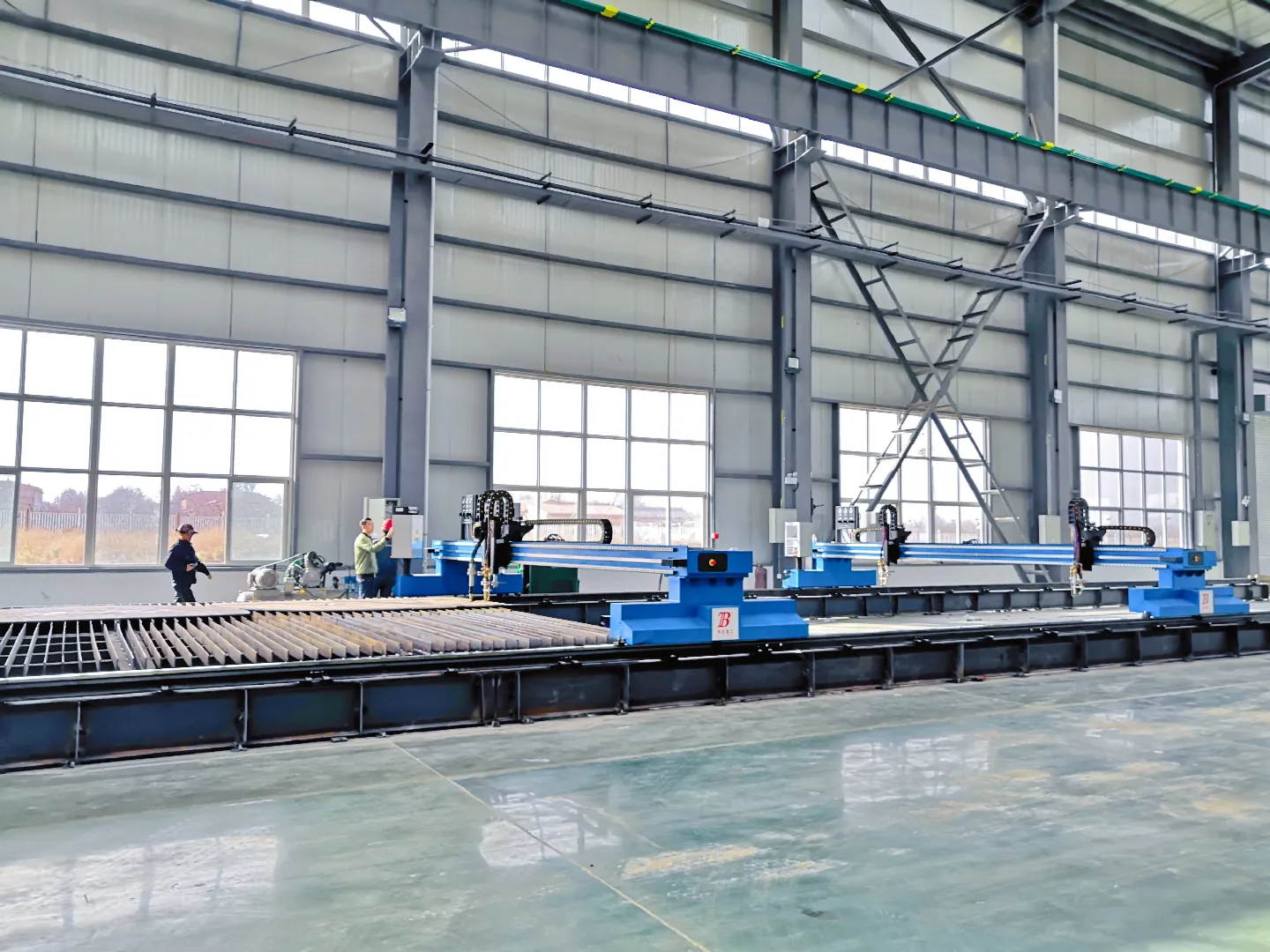The welding process for wind tower construction is critical for ensuring the structural integrity and longevity of the towers. Here is an overview of the main steps involved in the wind tower welding process.
Wind tower welding process

Material Preparation
Cutting: The steel plates used for wind towers are cut to size using methods like plasma cutting, laser cutting, or oxy-fuel cutting.
Edge Preparation: The edges of the steel plates are beveled to prepare them for welding. This helps ensure strong and consistent welds.
Plate Rolling
Rolling: The cut and prepared steel plates are rolled into cylindrical or conical sections. Rolling is done using plate rolling machines to achieve the desired curvature and diameter.
Tack Welding
Alignment: The rolled plates are aligned and held in place using fixtures.
Tack Welding: Small welds are made at intervals to hold the sections together temporarily before the final welding. Tack welds ensure that the plates remain properly aligned.
Root Pass Welding
Root Pass: The first pass, or root pass, is performed to join the plates from the inside. This pass is crucial as it forms the foundation of the weld. It is usually done using a welding process like Gas Tungsten Arc Welding (GTAW) or Shielded Metal Arc Welding (SMAW).

Fill and Cap Pass Welding
Filling: Subsequent passes are made to fill the groove created by the beveled edges. Multiple passes are required to fill the joint completely.
Capping: The final pass, known as the cap pass, is done to create a smooth and even surface on the weld. This pass also enhances the weld’s appearance and ensures it meets quality standards.
…
For more detailed information about wind tower welding process, please click here: https://www.bota-weld.com/en/a/news/wind-tower-welding-process.html



